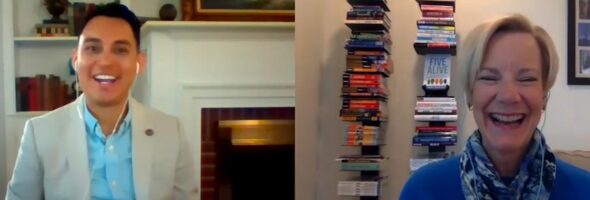the Oklahoma Center for Community and Justice
As an executive coach, racism rarely comes up directly, but rather subtly through biased comments and language. Moises Echeverria, on the other hand, addresses biases and racism directly as the CEO and President of Oklahoma Center for Community and Justice (OCCJ).
Years and generations of oppression keep the tension of power and prejudice alive. The job at the OCCJ is to help people move forward through education and policy reform. It all starts with biases – https://implicit.harvard.edu/implicit/education.html – race, age, ability, skin tone, religion etc.
Attention to Implicit Biases is supported by Research:
• Unconscious biases develop at an early age: biases emerge during middle childhood and appear to develop across childhood (Dore, 2014).
• Unconscious biases have real world effects on behavior (Dasgupta, 2004).
• Unconscious biases are malleable; one can take steps to minimize the impact of unconscious bias (Dasgupta, 2013; Dasgupta & Greenwald, 2013).
• A substantial amount of research has been published demonstrating impact of unconscious bias in various domains including the criminal justice system, education, and health/health care (Kirwan Institute, 2014)
What Can People do at the Personal Level
Start with educating yourself. After self-educating, engage in meaningful conversations with people different than you. Here are a few books to reference as a start:
Books
• How to be an Anti-Racist by Ibram X. Kendi
• The New Jim Crow by Michelle Alexander
• So You Want to Talk about Race by Ijeoma Oluo
• White Fragility by Robin Diangelo
Things well intentioned people say that are microaggressions:
• “I don’t see color” – negates real lived experiences of POC – People of Color
• “Pull yourself up by your bootstraps” – Impossible. Termed coined in 1800’s to emphasize how irrational it was to think that someone could do that. See Huffington Post story – 2018
• “We all just need to be kind to each other” – Agreed. Yet, we need to do a lot more. Kindness or niceness alone will not allow us to look at the policies and practices that continue to keep people oppressed.
• “My best friend is _.” Association with individuals from minoritized communities is not a guarantee that someone is not a racist/homophobe/etc.
• “All Lives Matter”– We should avoid this counterpoint to the phrase and organization of Black Lives Matter. Their goal is “to eradicate white supremacy and build local power to intervene in violence inflicted on Black communities by the state and vigilantes. By combating and countering acts of violence, creating space for Black imagination and innovation, and centering Black joy, we are winning immediate improvements in our lives.”
• “I’m not racist, therefore racism is not a problem.” What’s the big deal!? Lives are on the line. Generations of policies that have oppressed people. We should not negate the need to actively work.
Injustice anywhere is a threat to justice everywhere. All men are caught in an inescapable network of mutuality, tied in a single garment of destiny. Whatever affects one directly, affects all indirectly. I can never be what I ought to be until you are what you ought to be, and you can never be what you ought to be until I am what I ought to be.
German Lutheran pastor Martin Niemöller – “They came first for the Communists, and I didn’t speak up because I wasn’t a Communist. Then they came for the Jews, and I didn’t speak up because I wasn’t a Jew. Then they came for the trade unionists, and I didn’t speak up because I wasn’t a trade unionist. Then they came for the Catholics, and I didn’t speak up because I was a Protestant. Then they came for me, and by that time no one was left to speak up.”


